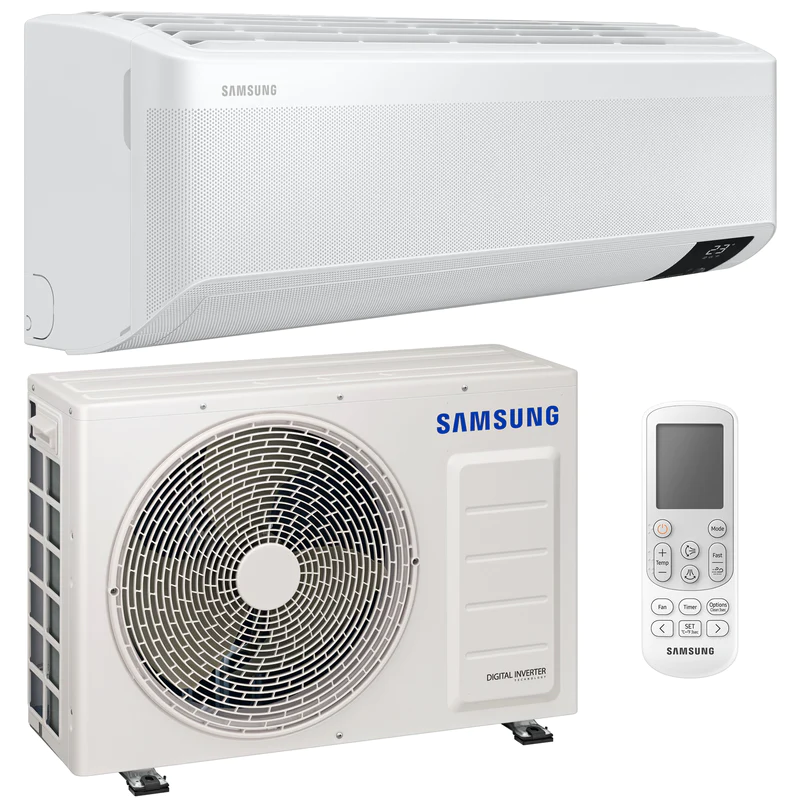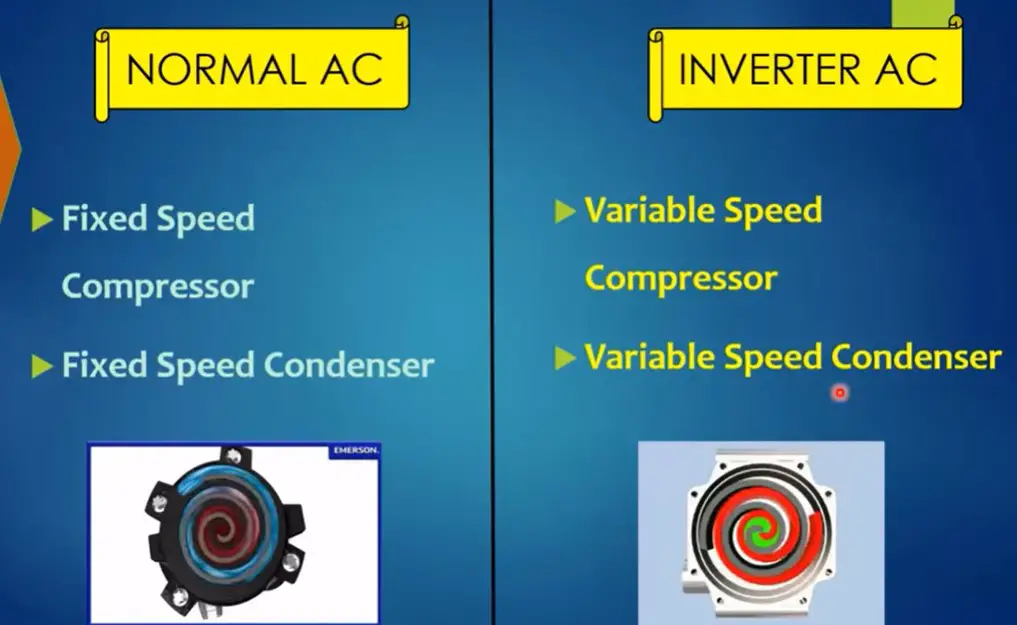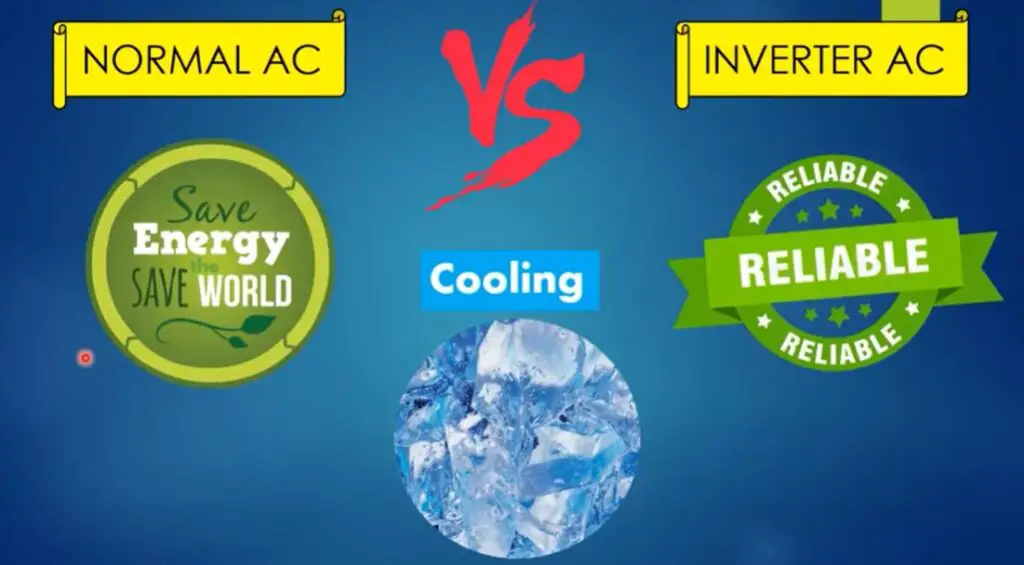The main disadvantage of inverter air conditioners is the high initial cost compared to non-inverter units. Additionally, their complex design may require more maintenance and repair work. Inverter air conditioners may also struggle to maintain a consistent temperature in extreme heat or cold.
However, these issues are outweighed by the benefits of inverter technology, such as energy efficiency and quieter operation. Ultimately, the disadvantages of inverter air conditioners are more a matter of cost and maintenance rather than performance.
In this blog post, we will try to know what is an inverter AC, how it works, what are disadvantages of inverter air conditioner, and the pros and cons of inverter vs non-inverter air conditioners. So, let’s dig down with us.

What is an Inverter Air Conditioner?
An inverter air conditioner is a type of AC unit that doesn’t have a compressor. Instead, it uses a device called an inverter to change the speed of the fans. Inverters of inverter air conditioners are acting to redirect the direct current (DC) into an alternating current (AC).
This can make the unit more efficient and quieter than a traditional AC unit. They can also run at lower wattage and uses less energy.
Inverter ACs are more expensive than traditional ACs, but they are more efficient and can save you money in the long run.
What Are The Disadvantages Of Inverter Air Conditioners: An Overview
An inverter air conditioner is a type of AC that uses an inverter to control the speed of the compressor. This allows the AC to run at a lower wattage and use less energy. An inverter air conditioner is a type of air conditioner that uses an inverter to convert direct current (DC) into alternating current (AC).
The main advantage of an inverter air conditioner is that it is much more energy efficient than a traditional air conditioner.
However, there are also some disadvantages of inverter air conditioners that you should be aware of before you purchase one.
One disadvantage of inverter air conditioners is that they can be quite noisy. This is because the inverter itself makes a humming noise when it is in operation. If you are looking for an air conditioner that will be very quiet, then an inverter model may not be the best option for you.
Another disadvantage of inverter air conditioners is that they can be quite expensive. This is because they are more energy efficient than traditional models and this means that they cost more to manufacture.
If you are on a budget, then an inverter model may not be the best option for you.
Possible Consequences of Inverter Air Conditioning
If you’ve ever shopped for a new air conditioner, you’ve probably come across the term “inverter.” Inverter air conditioners are becoming increasingly popular, as they offer a number of advantages over traditional units. However, there are also some potential drawbacks to consider before making your purchase.
Inverter air conditioners use an inverter to control the speed of the compressor. This results in a more efficient unit that can better maintain a consistent temperature in your home. Inverter units also tend to be quieter and have a longer lifespan than traditional air conditioners.
However, there are some potential downsides to inverter air conditioners as well. One is that they can be more expensive than traditional units. Additionally, if there is a power outage, inverter units will not work unless you have a backup generator.
Finally, inverter units may not be compatible with all types of thermostats. Before purchasing an inverter air conditioner, be sure to do your research and weigh the pros and cons carefully. This way, you can be sure you’re making the best decision for your home cooling needs.

Advantages And Disadvantages of Inverter AC
An inverter is a device that converts DC (direct current) to AC (alternating current). Inverters are used in a variety of applications, including power conditioning for electronic equipment, motor speed control, and UPS systems. There are several advantages and disadvantages of inverters that should be considered before selecting an inverter for a particular application.
Advantages:
-Inverters are more efficient than traditional transformers because they don’t have any moving parts.
-Inverters can be smaller and lighter than transformers because they don’t have any bulky cores or coils.
-Inverters can be designed to operate at high frequencies, which allows them to be used in high-speed applications such as motor speed control.
-The output of an inverter is always clean and smooth because there is no physical contact between the input and output circuits.
Disadvantages:
-Some inverters generate a lot of heat when operating at full capacity, which can reduce their efficiency.
-Inverters can be expensive, especially when compared to traditional transformers.

Inverter Air Conditioner Vs Non Inverter
If you’re in the market for a new air conditioner, you may be wondering whether to choose an inverter or a non-inverter model. Both have their pros and cons, so it’s important to understand the difference before making a decision. Inverter air conditioners are more expensive than non-inverter models, but they offer a number of advantages.
For one thing, inverters are more energy efficient since they can adjust their speed to match the cooling needs of your home. This means that they use less electricity overall, which can save you money on your energy bills. In addition, inverters tend to be quieter than non-inverters since they don’t have to cycle on and off as often.
They also tend to last longer since they put less strain on the compressor. If you’re looking for an air conditioner that will save you money and provide long-term reliability, an inverter is a good choice. Non-inverters, on the other hand, are less expensive upfront but may end up costing you more in the long run.
They’re not as energy efficient as inverters since they run at full power all the time, even when your home doesn’t need cooling. This can lead to higher electric bills over time. Non-inverters also tend to be louder and don’t last as long as inverters do.
So which type of air conditioner is right for you? The answer depends on your budget and needs. If saving money is your top priority, an inverter is a good choice.
But if you’re looking for an air conditioner that will last for many years without needing repairs, a non-inverter might be a better option.
INVERTER AC TOP 3 ADVANTAGES & TOP 3 DISADVANTAGE [Video]
FAQs For What Are Disadvantages Of Inverter Air Conditioners
Let’s find the frequently asked questions for what are disadvantages of inverter air conditioners below:
What is the Problem With Inverter AC?
There are a few potential problems that can occur with an inverter AC. The first is that the inverter itself can fail. This usually happens because of a manufacturing defect, but it can also happen if the AC is improperly installed or if it is not properly maintained.
If the inverter fails, the AC will not be able to generate power and will not work. The second problem that can occur is that the AC may not produce enough power. This can happen if the AC is not sized correctly for the space it is being used in or if there are other appliances in the same space that are drawing too much power.
Finally, the AC may produce too much power. This can happen if the AC is oversized for the space or if there are other appliances in the same space that are not using all of their available power.
Is Inverter AC Better Or Non-Inverter?
There are a few things to consider when trying to answer the question of whether inverter AC is better or non-inverter. The first thing is what you will be using the air conditioner for. If you need to cool a small space, then a non-inverter air conditioner might be better because they typically have a higher cooling capacity.
However, if you need to cool a large space or want the ability to control the temperature more precisely, then an inverter AC might be better. Inverter ACs also tend to be more energy efficient, so if saving money on your energy bill is a priority, then an inverter AC would probably be the better choice. Another thing to consider is how often you will be using the air conditioner.
If you only need it occasionally, then a non-inverter unit might suffice since they are generally less expensive upfront. However, if you plan on using the air conditioner frequently or for long periods of time, investing in an inverter unit will likely save you money in the long run due to its lower energy consumption. In addition, inverter units tend to have longer lifespans than their non-inverter counterparts since they don’t have as many moving parts that can wear out over time.
Is Inverter AC Good for Home?
When it comes to air conditioners, there are two main types: inverter and non-inverter. So, which one is better? Inverter ACs are more energy-efficient and have a longer lifespan, making them the better choice for most people.
However, they are more expensive upfront, so if you’re on a tight budget, a non-inverter AC may be the way to go.
Is Inverter AC a Good Choice?
Inverter ACs are a great choice for many reasons. They are more energy efficient than traditional ACs, they can save you money on your electric bill, and they are better for the environment.
Conclusion
An inverter air conditioner is a type of AC unit that uses an inverter to convert direct current (DC) into alternating current (AC). The main advantage of using an inverter is that it can save you money on your energy bill. Inverters are also more efficient than traditional AC units, and they generate less noise.
However, there are some disadvantages to using an inverter AC unit. One downside is that they can be more expensive than traditional AC units. Another potential disadvantage is that inverters may not be compatible with all types of HVAC systems.